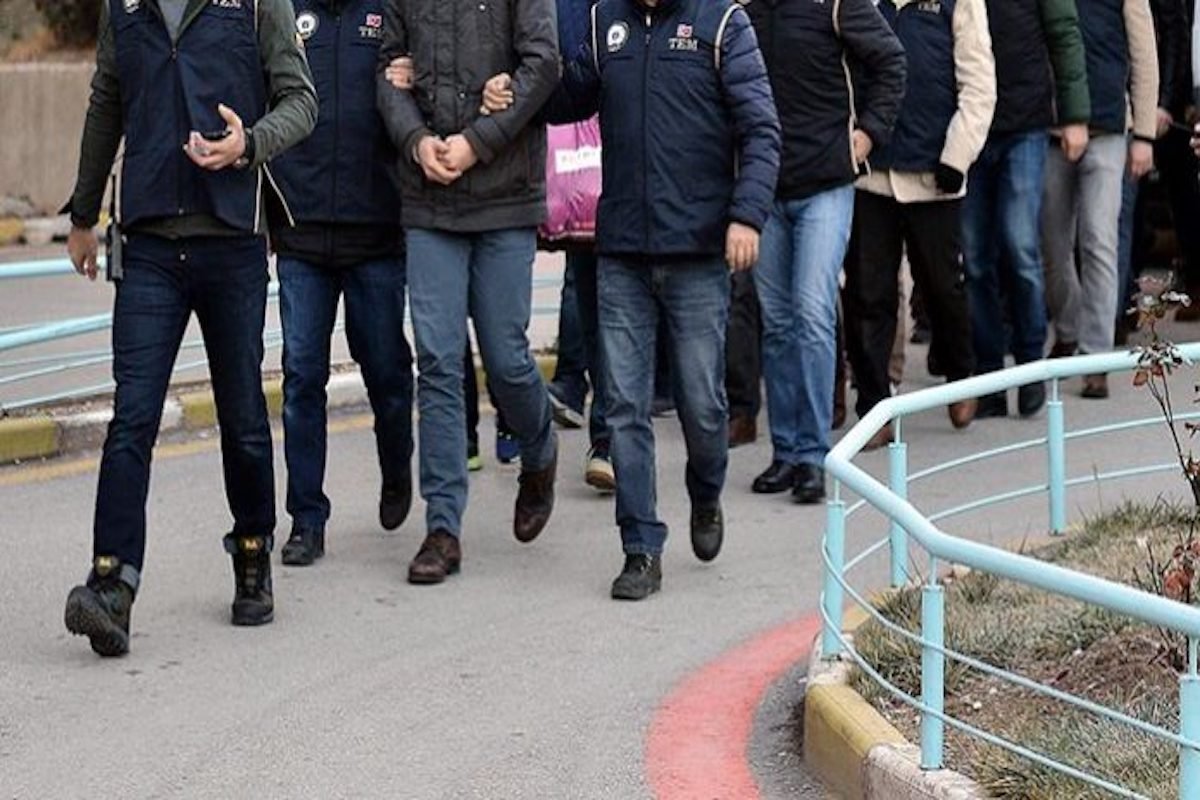The Turkish government on Wednesday detained dozens of people across Turkey, including active duty military officers, teachers, academics and health workers, as part of its massive post-coup witch hunt targeting alleged members of the Gülen movement.
Six people were detained by the gendarmerie in northwestern Edirne province on Wednesday as they were attempting to cross into Greece. Gendarmes reportedly stopped two vehicles near the Greek border and detained the drivers and four passengers, who used to work for institutions affiliated with the Gülen movement.
In a separate incident, Turkish border guards detained a couple who had worked as teachers at private schools that were closed down by the government under an ongoing state of emergency over their alleged affiliation with the Gülen movement as they were trying to cross into Greece on Wednesday in Edirne province. It was reported that the couple, identified only as B.K. and H.K., are being tried due to their alleged links to the Gülen movement and were barred by a court from leaving Turkey.
In an operation in central Eskişehir province, five people, including active duty military officers, were detained by police on Wednesday over their alleged links to the Gülen movement.
Also, on Wednesday, police detained 21 people including 17 active duty noncommissioned officers, dismissed teachers, teachers who used to work at shuttered schools affiliated with the Gülen movement and health workers in a Kayseri-based probe in five provinces. The detentions came after warrants were issued for 28 people in Kayseri, Batman, İzmir, Yalova and Elazığ provinces over alleged links to the movement.
Meanwhile, a court in western İzmir province sentenced a businessman to seven years, six months on Wednesday over alleged links to the Gülen movement and his suspected use of the ByLock mobile phone messaging application. He was convicted of “membership in an armed terrorist organisation.”
Separately, a court in the southeastern province of Gaziantep sentenced former Judge Selami Durak to eight years, one month and 15 days in prison on Wednesday over his alleged links to the Gülen movement. Prosecutor Cem Saklıca said Durak used the mobile phone messaging applications ByLock and Kakao Talk. Durak said he had no links to the movement and denied claims of using ByLock. The court, however, convicted and sentenced him on the charge of “membership in an armed terrorist organization.”
Turkish authorities believe ByLock is a communication tool among followers of the Gülen movement. Tens of thousands of people, including civil servants, police officers, soldiers, businessmen and even housewives, have either been dismissed or arrested for using ByLock since the failed coup attempt on July 15, 2016.
Turkey survived a controversial military coup attempt on July 15, 2016 that killed 249 people. Immediately after the putsch, the Justice and Development Party (AKP) government along with President Erdoğan pinned the blame on the Gülen movement.
Fethullah Gülen, who inspired the movement, strongly denied having any role in the failed coup and called for an international investigation into it, but President Erdoğan — calling the coup attempt “a gift from God” — and the government initiated a widespread purge aimed at cleansing sympathizers of the movement from within state institutions, dehumanizing its popular figures and putting them in custody.
Turkey has suspended or dismissed more than 150,000 judges, teachers, police and other civil servants since July 2016. Turkey’s interior minister announced on December 12, 2017 that 55,665 people have been arrested. On December 13, the Justice Ministry announced that 169,013 people have been the subject of legal proceedings on coup charges since the failed coup.
A total of 48,305 people were arrested by courts across Turkey in 2017 over their alleged links to the Gülen movement, Interior Minister Süleyman Soylu said on Dec. 2, 2017. “The number of detentions is nearly three times higher,” Soylu told a security meeting in İstanbul and claimed that “even these figures are not enough to reveal the severity of the issue.”
















